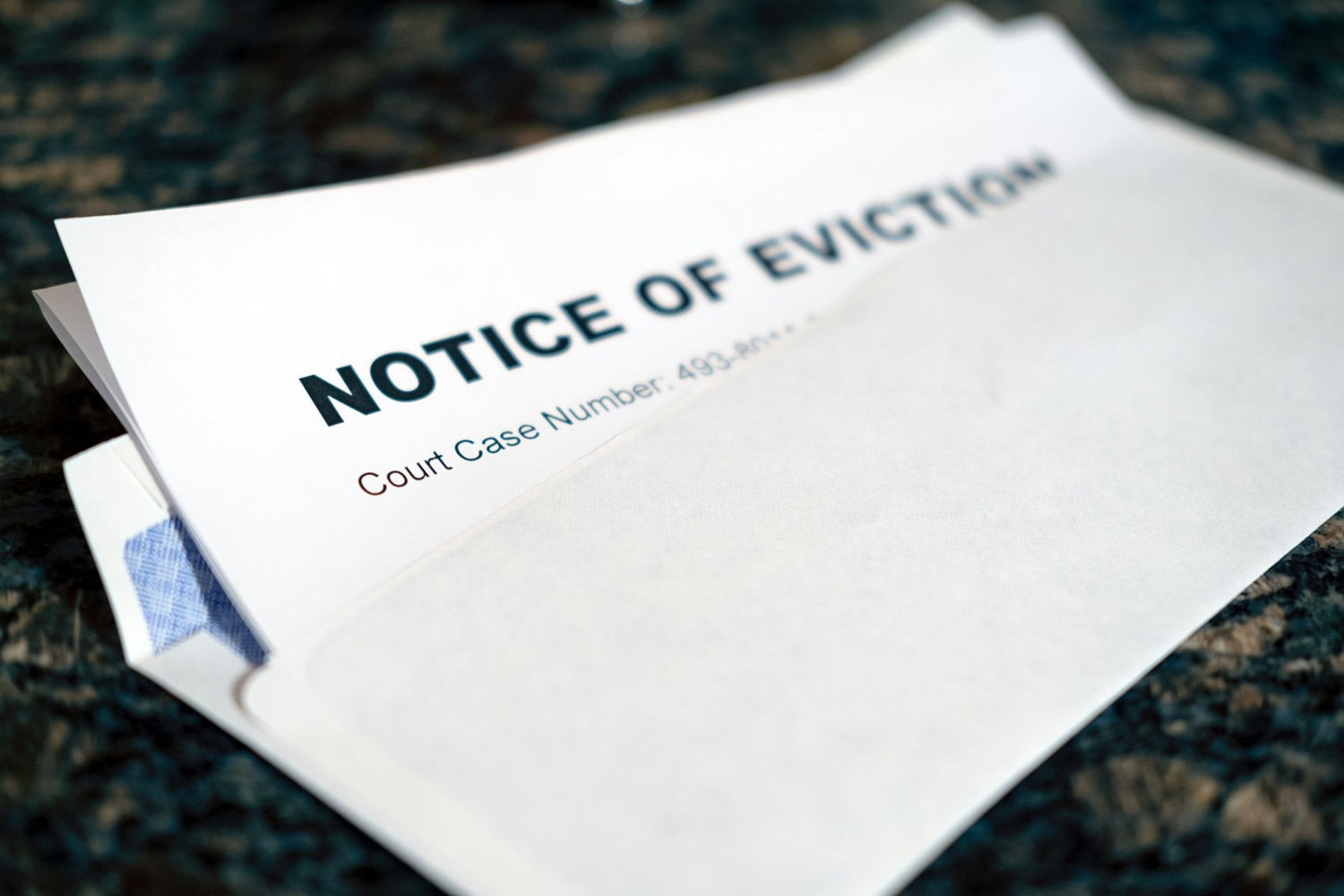Landlords must serve a legal notice to tenants if they want to start the eviction process. As a part of this notice, they need to be clear about the reasoning behind the eviction.
Most tenancies in the UK are Assured Shorthold Tenancies, or ASTs, so we’ll focus on eviction for this type of tenancy. Other tenancy types can have some protection from eviction.
Read on for more details on eviction notices and shorthold tenancies.
Types of eviction notices
When starting the eviction process for an AST, landlords in England have two types of notice to choose from.
One option is a Section 21 Notice, also known as a ‘no-fault’ notice. With this notice, the landlord is not asserting that the tenant has done something wrong. Therefore, the landlord is not required to provide grounds for the eviction.
The other possibility is a Section 8 Notice. This notice is used when the tenant has breached their tenancy agreement. As a part of the Section 8 Notice, the landlord is required to specify in what way or ways the tenant has breached the agreement. These reasons for eviction are called the grounds for possession.
In Scotland, there is only one type of eviction notice – the Notice to Leave – and private residential tenants cannot be evicted without grounds.
There are several different types of eviction notices in Wales, including several different types of no-fault notices.
In Northern Ireland, the landlord simply needs to give a Notice to Quit in writing. Whether or not a tenant can be evicted without grounds depends on the length of their tenancy and whether they have a tenancy agreement.
On what grounds can a landlord evict a tenant in the UK using a Section 8 Notice?
There are two main types of grounds for possession. Which category of grounds are used will affect how the courts will handle the eviction process if it goes to court.
The two types are:
- Mandatory grounds: The court must enforce the eviction as long as the landlord’s justification for the grounds is proven to be true.
- Discretionary grounds: The court can choose whether or not to enforce the eviction. In other words, even if the details given by the landlord are proven to be true and the grounds are properly applied, the court may not necessarily grant possession of the property to the landlord.
Note that the list of grounds for possession in Scotland is slightly different from the ones in England, which we’ll list below.
The grounds for possession in Wales are also different. Similarly, there are only 11 grounds for possession in Northern Ireland.
On what mandatory grounds can a landlord evict a tenant in the UK?
Not all UK countries have mandatory grounds for possession. Scotland doesn’t, as all its grounds are discretionary.
However, in England, mandatory grounds for possession are:
- The landlord wants to move into the property or sell it.
- The property is mortgaged and the mortgagee wants to sell it, or there’s a “superior landlord” who was leasing to the tenant’s landlord and wants to exercise their rights to the property.
- The property is a holiday let.
- The property is student accommodation.
- The property is needed to house a minister of religion or an employee of the landlord (specific details apply). Or the property is being used as supported housing or homeless accommodation and specific conditions are met, or the tenant no longer meets employment requirements for social housing.
- The landlord wants to make significant changes to the property that can’t be done when someone lives there.
- The tenant has died.
- The tenant has engaged in serious anti-social behaviour.
- One or more tenants does not have a right to rent because of their immigration status.
- The tenant is 3 months or more behind on rent.
On what discretionary grounds can a landlord evict a tenant in the UK?
As with the mandatory grounds, discretionary grounds differ in different countries.
In England, discretionary grounds are:
- The landlord has another suitable home the tenant can move to.
- The tenant is behind on rent (in arrears).
- The tenant is persistently behind on rent.
- The tenant has breached a term of their tenancy in a way not otherwise specified in this list.
- The condition of the property is deteriorating because of the tenant’s behaviour.
- The tenant or their guests have engaged in anti-social, illegal or immoral behaviour.
- A tenant is accused of domestic abuse and their partner has left the property to get away from them.
- The tenant committed a serious legal offense while rioting.
- The condition of the furniture is deteriorating because of the tenant’s behaviour.
- The landlord let the property to the tenant because they were employing the tenant, but that employment has ended.
- The tenancy should never have been granted because some of the statements given to obtain the tenancy were false.
Legal advice from experienced property solicitors
Each potential ground for possession includes more details that must be met to ensure the eviction is legal. It can be difficult to know exactly when the grounds for possession apply and when they don’t.
That’s why our qualified landlord and tenant solicitors are here to offer invaluable expertise to both renters and landlords.
If you’d like to talk through your situation in more depth, try a free, no-obligation 30-minute consultation from Osbourne Pinner Solicitors. To sign up, fill in our form below, call 0203 983 5080 or email us at [email protected].
Book your free consultation




